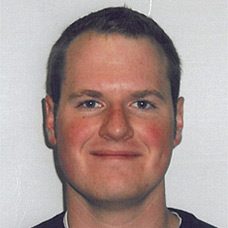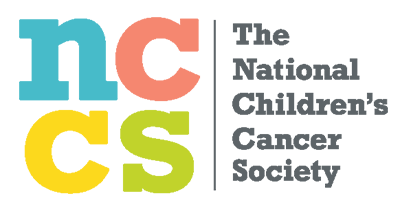Meet John Worm

Years Awarded:
2018-2019
"No cancer survivor is truly cancer-free. I will carry it with me for the rest of my life."
I was somewhat surprised to find myself holding back tears while we watched this video; it brought back such a flood of difficult memories. I have been off of treatment for over nine years, and four years ago I was officially declared a leukemia survivor. It’s been such a long time that occasionally I think I have “moved on” with my life. I feel very different today from the frightened eleven-year old who spent so much time at the hospital. The tears caught me off guard on Christmas because I thought I had been able to put most of that pain behind me. I imagined myself as all grown up, and for a moment I believed I was cancer-free, until I remembered that no cancer survivor is ever truly cancer-free. I will carry it with me for the rest of my life.
This is not a bad thing, but it is a delicate balance. I am genuinely grateful for my cancer experience because without it, I know I would be a very different person today. I think about it most every day, often just in passing, but sometimes more seriously. My leukemia by no means defines who I am, and most of my acquaintances don’t even know I had it. On a list of ways I would describe myself, “cancer survivor” would not be the first, and I think this is the way it should be. I believe the moment cancer becomes our defining characteristic, we begin to lose the battle with it. However, we should not merely place it in the undefinable past or put it on a shelf as simply a period of our lives, because it affects everything that comes after it. I am living proof of that.
One way my battle with cancer has affected my life is by helping me feel more compassion for those who are suffering. I try to avoid judging those around me because I don’t really know what struggles they may be dealing with. For the last part of my chemotherapy treatment I was on a dosage low enough to allow me to keep my hair, yet high enough to cause nausea and fatigue every day. Almost no one at my new school knew what I was dealing with. That was hard, maybe the hardest thing I went through. I was able to find great help in therapy and mental health care, which is why I want to go into that field of work. After I complete my undergraduate degree I would like to get a master’s degree to become a licensed clinical social worker. To that end I am currently majoring in English and minoring in psychology to prepare for graduate school. Clinical social workers treat patients with all sorts of mental health issues; the job requires a great deal of patience, compassion and understanding, qualities which beating cancer has taught me.
I also gained a greater desire to achieve and succeed in all aspects of life when I was faced with the prospect of losing my life. Because I could not do so many of the physical activities I wanted to do while on treatment, I focused on something that I could control- academics. I earned several academic awards and maintained a perfect 4.0 GPA during my treatment and for many years after. Even now, in college, that is my goal and expectation for myself in regards to my schoolwork. I learned this focus and discipline because I had to work so hard to achieve anything while battling cancer, and it has stuck with me and served me well.
After more than three years of extreme fatigue and weakness, as soon as I completed treatment I was eager for my body to recover so I could use it to the fullest. First, I joined the wrestling team at my high school for a couple of years. After that, my sister and I decided to run a marathon with Team in Training, a fundraising branch of the Leukemia and Lymphoma Society. We trained for a year and raised over $18,000 dollars for cancer research in the process. In October of 2003, barely two years after ending treatment, we completed the Dublin Marathon in Ireland. It’s hard to describe how difficult and incredibly rewarding that whole experience was. It felt so good to help fund the cancer research that had already saved my life. I have never taken my health for granted, because I know how terrible it is when it’s gone.
On that Christmas day, as I watched the little boy in the video say goodbye to his hair, looking so stoic and brave, I couldn’t help but think how he had no idea what lay in store. I wondered, if I could go back in time, would I warn him, or tell him to do anything differently? I don’t believe I would. While my battle with cancer has not and does not consume my life, it has shaped every facet of it, and I wouldn’t have it any other way.
